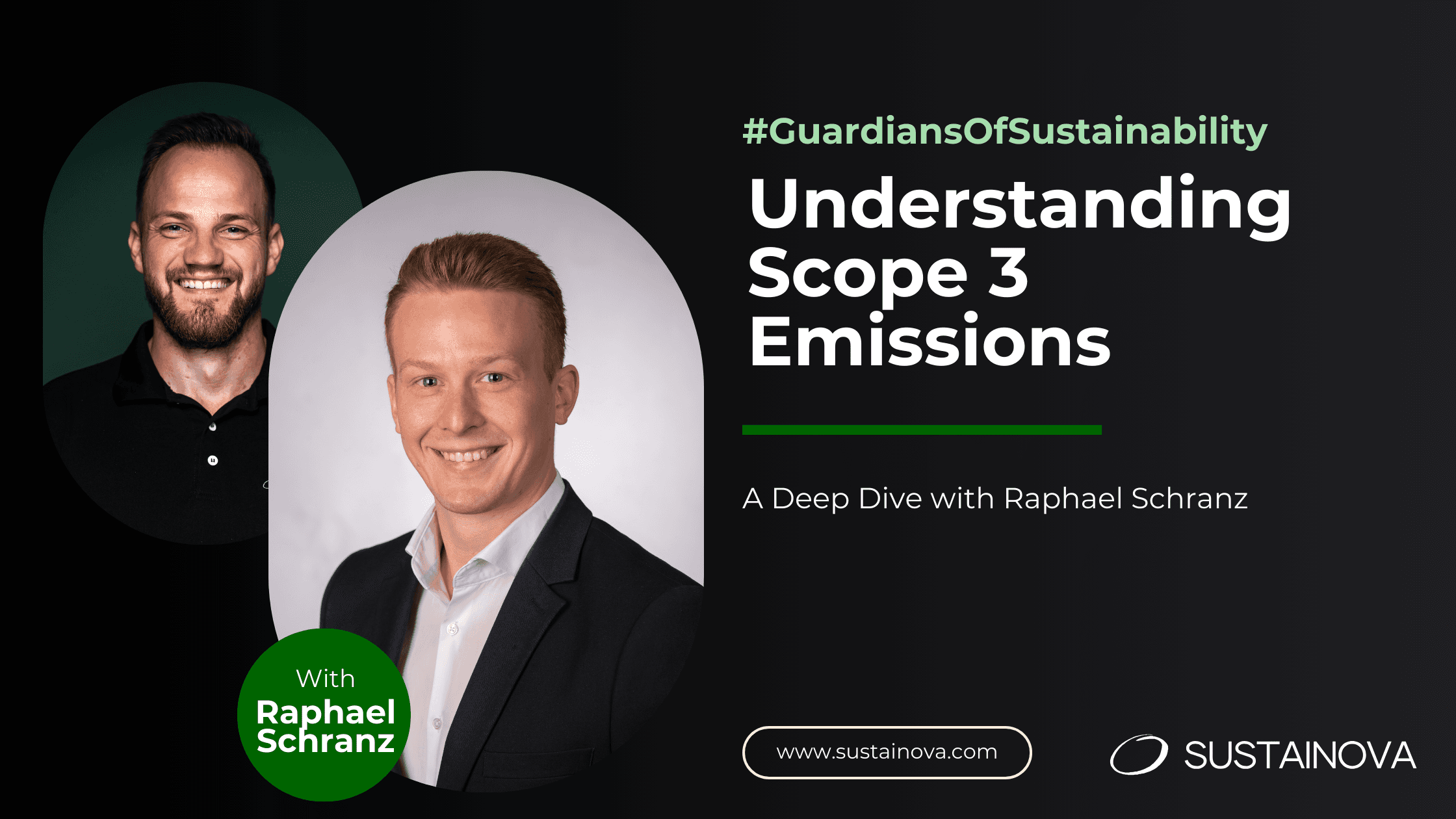
Welcome to the first episode of the Guardians of Sustainability Podcast! We are excited to have Raphael Schranz, a certified circular economy specialist, join us to discuss the intricate challenges companies face with Scope 3 emissions. This episode delves into the complexities of data accuracy, supplier engagement, verification processes, and the role of advanced technologies in sustainability reporting.
Understanding Scope 3 Emissions
Scope 3 emissions, also known as value chain emissions, encompass all indirect emissions that occur in a company’s value chain. These emissions are often the most significant portion of a company’s carbon footprint, making their accurate measurement and management crucial for comprehensive sustainability reporting.
Key Challenges Highlighted by Raphael Schranz
1. Data Collection and Accuracy
One of the primary challenges companies face is the collection of precise data across their supply chain. Raphael points out:
"One of the biggest challenges is gathering precise data from the entire supply chain. Many companies end up using average data, which can lead to significant inaccuracies and obscure the true environmental impact."
2. Supplier Engagement
Engaging suppliers to ensure they adhere to sustainable practices is another critical hurdle. Raphael emphasizes the need for transparency and active collaboration:
"Engaging suppliers and ensuring they adhere to sustainable practices is crucial. This requires transparency and active collaboration to manage Scope 3 emissions effectively."
3. Verification Processes
Without stringent verification processes, the risk of data manipulation or inaccuracies increases. Raphael discusses the importance of third-party verification:
"Without robust verification processes, there's a risk of inaccurate or manipulated data. Third-party verification is essential to maintain the integrity and reliability of sustainability reports."
4. Technological Integration
Advanced technologies such as AI and blockchain can significantly enhance the management and accuracy of Scope 3 emissions data. Raphael explains:
"Leveraging advanced technologies like AI and blockchain can significantly enhance the accuracy and management of Scope 3 emissions data. These innovations offer practical solutions to overcome major sustainability reporting challenges."
Strategies to Overcome These Challenges
Implement Robust Data Collection Systems: Investing in comprehensive data collection systems that capture detailed emissions data across the supply chain is essential. Utilizing technology to streamline and verify this data can reduce inaccuracies.
Enhance Supplier Collaboration: Building strong relationships with suppliers and ensuring they understand and commit to sustainability goals is crucial. Regular communication, transparency, and shared goals can foster a collaborative environment.
Adopt Third-Party Verification: Engaging third-party verifiers to audit and verify sustainability data ensures accuracy and reliability. This step helps maintain the integrity of sustainability reports and builds trust with stakeholders.
Integrate Advanced Technologies: Utilizing AI and blockchain can automate data collection, enhance transparency, and provide immutable records of sustainability data. These technologies can address many of the challenges associated with Scope 3 emissions.
Conclusion
Addressing the challenges of Scope 3 emissions is critical for achieving comprehensive sustainability goals. Raphael Schranz’s insights provide valuable guidance on navigating these complexities and leveraging innovative solutions. By focusing on accurate data collection, supplier engagement, robust verification, and technological integration, companies can enhance their sustainability reporting and make significant strides toward a greener future.
